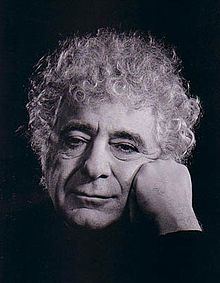Loris Tjeknavorian
| Loris Tjeknavorian | |
|---|---|

Loris Tjeknavorian
|
|
| Born |
Loris Tjeknavorian Լորիս Հայկազի Ճգնավորյան October 13, 1937 Borujerd, Lorestan, Iran |
| Residence |
Tehran, Iran Vienna, Austria (1990–2000) |
| Nationality | Iranian Armenian |
| Alma mater |
Tehran University of Music University of Michigan |
| Occupation | Composer and Conductor |
| Years active | 1960–present |
| Website | www.loristjeknavorian.com |
Loris Haykasi Tjeknavorian (also spelled Cheknavarian, Armenian: Լորիս Ճգնավորյան; Persian: لوریس چکناواریان, born 13 October 1937 in Borujerd) is an Iranian Armenian composer and conductor. He is one of the most celebrated cultural figures in Armenia and Iran.
As one of the leading conductors of his generation, he has led international orchestras throughout the world: in Austria, UK, USA, Canada, Hungary, Copenhagen, Iran, Finland, USSR, Armenia, Thailand, Hong Kong, South Africa, Denmark, and Israel.
As a composer Tjeknavorian has written 6 operas, 5 symphonies, choral works (among them God is Love, The Life of Christ, the oratorio Book of Revelation, and a requiem), chamber music, ballet music, piano and vocal works, concerti for piano, violin, guitar, cello and pipa (Chinese lute), as well as music for documentary and feature films.
His compositions have been performed by major orchestras, including the London Symphony Orchestra, London Philharmonic Orchestra, Halle Orchestra, Philharmonic Orchestra Helsinki, American Symphony Orchestra in New York, Tehran Symphony Orchestra, Johannesburg Symphony Orchestra, Haifa Symphony Orchestra, the Mexico Symphony Orchestra, London Percussion Virtuosi, Strasbourg Percussion Ensemble and English Chamber Orchestra. He has made some 100 recordings with RCA, Philips, EMI, ASV, and others.
Born in Borujerd, Iran in 1937 to immigrant Armenian parents, Tjeknavorian's early life was succinctly chronicled in the London magazine Gramophone in 1976:
“His father came from Eastern Armenia and his mother had fled from Western Armenia during the 1915 massacre…Influenced by three cultures, Armenian, Iranian and Western he benefited from a cosmopolitan upbringing. His grandfather, a doctor, liked to play the violin and as a boy Loris enjoyed listening to professional string-players (Russian, Armenian or Polish immigrants) in local cafés. Although not themselves musical, his parents wanted all three children (one boy, two girls) to play musical instruments. Eight-year-old Loris was given a violin. Despite the lack of a teacher, the boy began to study in earnest; before long he had composed a number of piano pieces, with no formal instruction whatsoever. At 16 he formed a four-part choir and organized and conducted his own orchestra in Teheran. A year later he was ready to leave for the Vienna Academy of Music as a violin and composition student. While there, he wrote a violin concerto, which received the ultimate endorsement from his teacher, Hans-Joachim Drevo, who was the soloist in the work’s première. Tjeknavorian graduated with honours.” (Gramophone, November 1976)
...
Wikipedia
